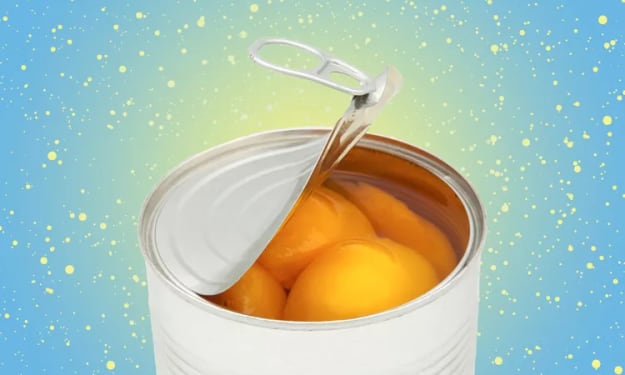The Sweet Tooth Mystery: Why Do Diabetics Crave Sweets?
Understanding the Relationship Between Diabetes and Sugar Cravings

Introduction:
Diabetes, a chronic condition characterized by high blood sugar levels, affects millions of people worldwide. One common stereotype about diabetics is that they have a sweet tooth and crave sugary foods, which may seem puzzling since high sugar intake is often discouraged in diabetes management. But why do diabetics like sweets so much? Is there a scientific explanation for this phenomenon? In this article, we will explore the relationship between diabetes and sugar cravings, shedding light on the underlying factors that may contribute to this phenomenon.
The Science of Sugar Cravings:
To understand why diabetics may crave sweets, it's important to delve into the science of sugar cravings. Our brain has a reward center that is responsible for regulating our pleasure and reward sensations. Sugar, particularly in the form of refined carbohydrates, can trigger the release of dopamine, a neurotransmitter associated with pleasure, in this reward center. This can create a pleasurable sensation that can lead to cravings and an increased desire for sugary foods.
Additionally, research suggests that sugar can also affect the levels of certain hormones, such as insulin and leptin, which are involved in regulating hunger and satiety. High sugar intake can disrupt the balance of these hormones, leading to an increased appetite and cravings for sweets.
Diabetes and Sugar Cravings:
When it comes to diabetes, the relationship between sugar cravings and blood sugar control can be complex. In type 1 diabetes, the body does not produce insulin, a hormone that helps regulate blood sugar levels. As a result, people with type 1 diabetes may experience uncontrolled high blood sugar levels, which can lead to increased thirst, frequent urination, and weight loss. In this case, sugar cravings may not necessarily be related to blood sugar control, but rather a result of other factors such as hormonal imbalances or psychological factors.
On the other hand, in type 2 diabetes, the body becomes resistant to insulin, leading to elevated blood sugar levels. This can be influenced by various factors, including genetics, lifestyle, and diet. In type 2 diabetes, sugar cravings can be a result of the body's attempt to regulate blood sugar levels. When blood sugar levels are high, the body may crave sweets as a way to lower blood sugar levels. However, consuming excess sugar can exacerbate the condition and lead to further complications.
Psychological Factors:
Apart from physiological factors, psychological factors can also play a role in sugar cravings among diabetics. Diabetes can be a challenging condition to manage, and the strict dietary restrictions and lifestyle changes may lead to feelings of deprivation and restriction. This can trigger emotional eating or a coping mechanism where sugary foods provide comfort or relief from stress and emotional distress. Moreover, food is often associated with emotions, memories, and social gatherings, and diabetics may find themselves craving sweets in social situations or as a way to cope with emotions related to their condition.
Management Strategies:
Managing sugar cravings can be a crucial aspect of diabetes management. Here are some strategies that diabetics can consider:
Balanced Diet: Following a balanced diet that is low in added sugars and refined carbohydrates can help regulate blood sugar levels and reduce sugar cravings. Opt for whole grains, lean proteins, healthy fats, and plenty of non-starchy vegetables to keep blood sugar levels stable.
Mindful Eating: Practicing mindful eating can help diabetics become more aware of their eating habits and make conscious choices about their food intake. Paying attention to hunger cues, eating slowly, and savoring each bite can help prevent overeating and unnecessary sugar cravings.
Blood Sugar Monitoring: Regular monitoring of blood sugar levels can help diabetics identify patterns and triggers for sugar cravings. By keeping track of their blood sugar levels, diabetics can adjust their diet and lifestyle accordingly to manage their cravings effectively.
Alternative Sweeteners: Diabetics can consider using alternative sweeteners, such as stevia or monk fruit, to satisfy their sweet tooth without affecting blood sugar levels. However, it's important to use these sweeteners in moderation and in consultation with a healthcare professional.
Stress Management: Managing stress can also play a significant role in reducing sugar cravings among diabetics. Engaging in stress-reducing activities such as exercise, meditation, and adequate sleep can help regulate hormones and reduce emotional eating.
Support System: Having a support system in place can provide diabetics with encouragement, motivation, and accountability in managing their sugar cravings. This can be in the form of a healthcare team, family members, or a support group for diabetics.
Conclusion:
In conclusion, while it may seem counterintuitive, diabetics may crave sweets due to a combination of physiological and psychological factors. The impact of high sugar intake on blood sugar levels can be complex in diabetes, and it's crucial for diabetics to manage their sugar cravings effectively to maintain optimal blood sugar control. By following a balanced diet, practicing mindful eating, monitoring blood sugar levels, using alternative sweeteners, managing stress, and seeking support, diabetics can reduce their sugar cravings and better manage their condition.
Berberine, a naturally occurring compound found in various plants, has gained attention for its potential health benefits, including its ability to support blood sugar management. Berberine has been studied for its ability to help regulate blood sugar levels by improving insulin sensitivity, reducing sugar cravings, and supporting overall metabolic health. For diabetics who may struggle with sugar cravings, incorporating a high-quality berberine supplement into their daily routine may be a promising option to support their blood sugar management goals. Berberine's natural properties make it a potentially effective supplement to complement a healthy lifestyle and diabetes management plan, helping diabetics better manage their sugar cravings and maintain optimal blood sugar control.





Comments
There are no comments for this story
Be the first to respond and start the conversation.